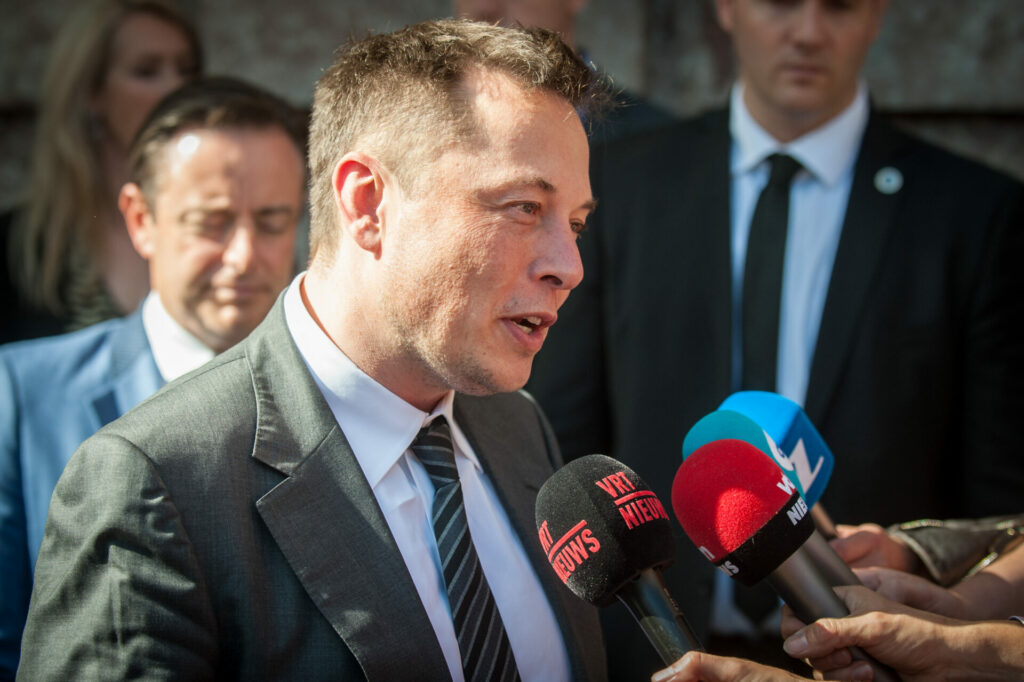Elon Musk suspended several journalists' Twitter accounts on Thursday evening after the new platform's CEO claimed that the reporters were "doxxing my real-time location and endangering my family."
On Friday, the suspended accounts include Micah Lee of The Intercept, Ryan Mac of The New York Times, and Donie O'Sullivan of CNN.
Musk also suspended the official account of Mastodon, a rival to Twitter which has been rapidly growing in popularity ever since Musk's $44 billion purchase of the platform in October.
The suspensions have led to numerous allegations of hypocrisy against Musk, who has previously described himself as a "free speech absolutist". Last month, Musk induced a similar outcry after he suspended the accounts of former Twitter employees who had previously criticised him.
Doxxing or free speech?
Musk's cited reason for suspending the journalists' accounts was that they had either linked to or cited directly a Twitter account named ElonJet, run by 20-year-old college student Jack Sweeney, which tracks the tech billionaire's private jet in real-time.
Importantly, the ElonJet account uses information which is already publicly available.
Although Musk had explicitly promised back in November that his "commitment to free speech extends even to not banning the account following my plane, even though that is a direct personal safety risk", events on Wednesday evening apparently led Musk to change his mind.
According to Musk, a car carrying his son ('lil X') was "followed by a crazy stalker" on Wednesday evening who "blocked [the] car from moving & climbed onto [the] hood". Musk further stated that is now in the process of taking legal action "against Sweeney & organisations who supported harm to my family".
Musk has since published no further details about the stalker, although his Twitter account did publish a video which appears to capture the stalker's masked face as well as his vehicle's number plates.
In addition to suspending the ElonJet account, Musk banned journalists from the platform who, he claims, either displayed his private jet's real-time flight information directly or posted links to other accounts which did.
On Thursday, Musk was involved in a highly revealing verbal exchange with Drew Harwell of The Washington Post, whose account was one of those suspended for "doxxing" (i.e. revealing identifying information about a person on the internet) the platform's CEO.
"There's not going to be any distinction in the future between journalists and regular people," Musk said. "Everyone is going to be treated the same. You dox, you get suspended, end of story."
He added: "Ban evasion, or trying to be clever about it and saying, 'Oh, I posted a link to the real-time information': that's no different from posting the real-time information."
"You're suggesting that we're sharing your address, which is not true," Harwell responded. "I never posted your address."
"You posted a link to the address," Musk responded. "In the course of reporting about Elon Jet we posted links to ElonJet," Harwell admitted. "[But] the links are now not online, and are now banned on Twitter."
Related News
- Musk threatens 'war' with Apple over decision to pull Twitter advertising
- Musk grants 'general amnesty' to suspended Twitter accounts
After suspending the journalists' accounts, Musk issued a poll in which he asked Twitter users to vote on when — or whether — he should "unsuspend accounts who doxxed my exact location in real-time". After a plurality of people voted to "unsuspend the accounts now", Musk claimed he would "redo the poll" as the current one included "too many options" but the final result remained unchanged.
In responding to accusations of hypocrisy given his previous professed commitment to free speech, Musk was unrepentant and, indeed, attempted to suggest that his critics were themselves being hypocritical.
"If anyone posted real-time locations & addresses of NYT reporters, FBI would be investigating, there'd be hearings on Capitol Hill & Biden would give speeches about end of democracy!" he tweeted.
Numerous news outlets and public institutions have condemned the accounts' suspensions, including, perhaps most notably, the American Civil Liberties Union (ACLU).
"Purging critical journalists is an attack on free expression," the ACLU tweeted. "The First Amendment protects Musk's right to do this even if it's a terrible decision. Twitter should reinstate these accounts immediately."

